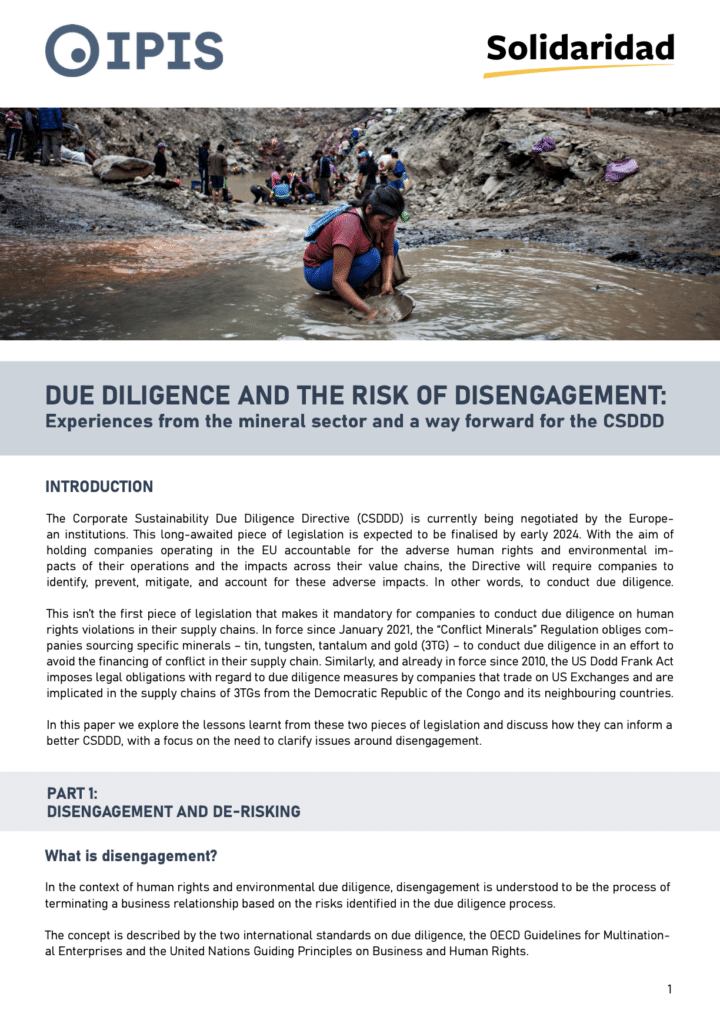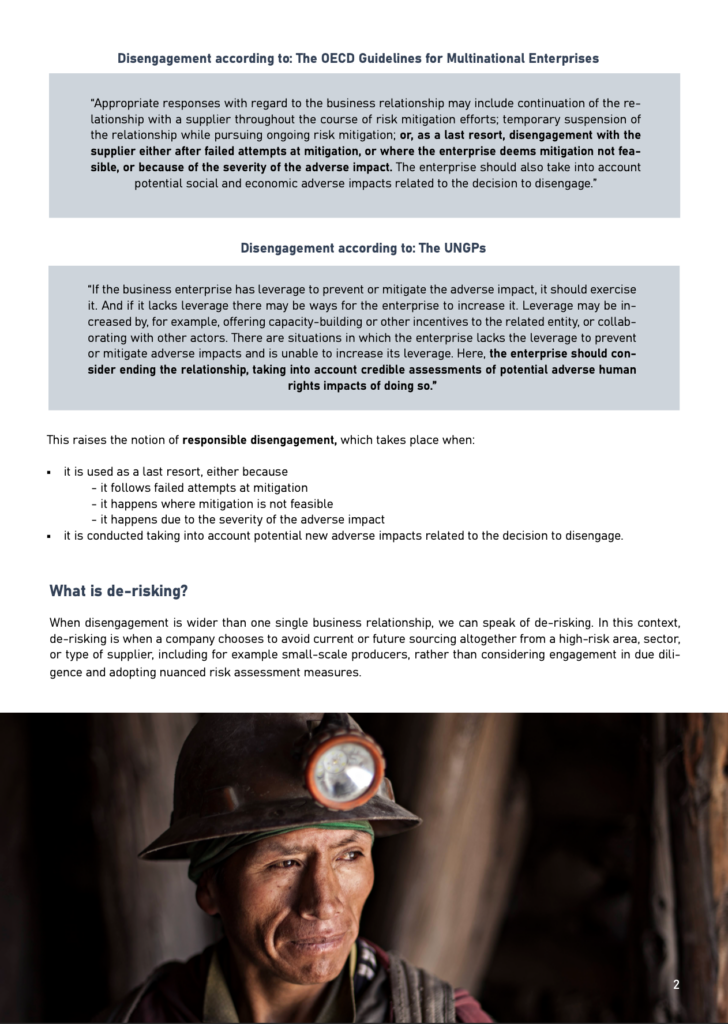The Corporate Sustainability Due Diligence Directive (CSDDD) is currently being negotiated by the European institutions. This long-awaited piece of legislation is expected to be finalised by early 2024. With the aim of holding companies operating in the EU accountable for the adverse human rights and environmental impacts of their operations and the impacts across their value chains, the Directive will require companies to identify, prevent, mitigate, and account for these adverse impacts. In other words, to conduct due diligence.
This isn’t the first piece of legislation that makes it mandatory for companies to conduct due diligence on human rights violations in their supply chains. In force since January 2021, the “Conflict Minerals” Regulation obliges companies sourcing specific minerals – tin, tungsten, tantalum and gold (3TG) – to conduct due diligence in an effort to avoid the financing of conflict in their supply chain. Similarly, and already in force since 2010, the US Dodd Frank Act imposes legal obligations with regard to due diligence measures by companies that trade on US Exchanges and are implicated in the supply chains of 3TGs from the Democratic Republic of the Congo and its neighbouring countries.
In this paper, IPIS and Solidaridad explore the lessons learnt from these two pieces of legislation and discuss how they can inform a better CSDDD, with a focus on the need to clarify issues around disengagement.
Photo: ©All rights reserved: Patricio Crooker / Solidaridad

This document has been produced with the financial assistance of the European Union. The contents of the document are the sole responsibility of IPIS and Solidaridad and can under no circumstances be regarded as reflecting the position of the European Union.



